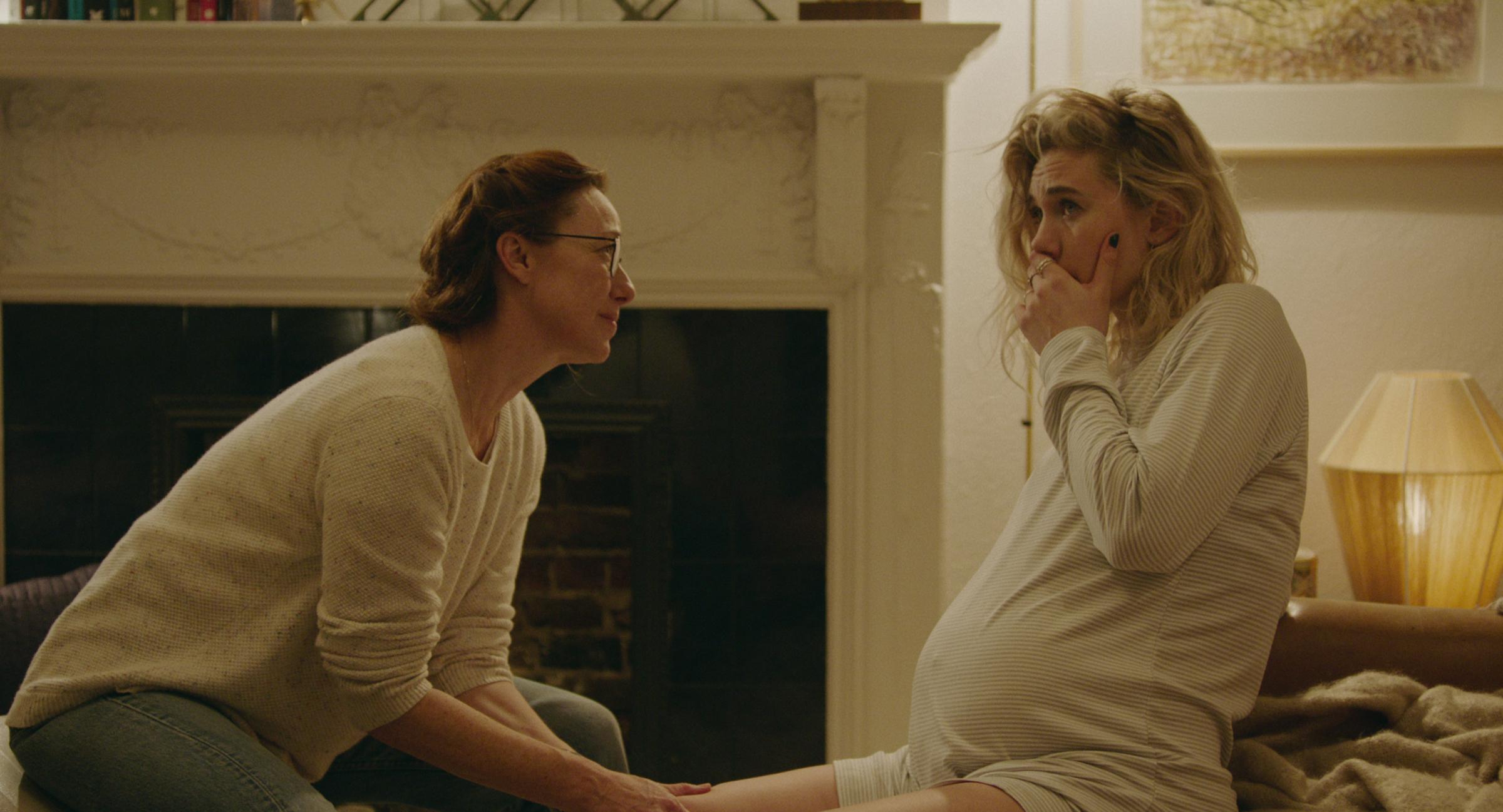There’s a strong argument to be made—maybe it’s the only argument—that art should make us feel something. But a work can sometimes beat its audience into a kind of glassy-eyed retreat from feeling, even against a filmmaker’s best intentions. It’s one thing to have emotions coaxed out of you; it’s another to feel punished into submission.
The first half-hour or so of Pieces of a Woman—directed by Kornél Mundruczó and starring Vanessa Kirby as a woman whose child dies just minutes after birth, and now streaming on Netflix—is so emotionally grueling that it’s almost unbearable. Even if you force yourself to watch, as I had to, you may feel beaten up afterward, rather than devastated by a pure rush of feeling. Unintentionally, the film’s opening also does a disservice to the subtlety of some of the performances, particularly Kirby’s. It may be a movie that takes the wrong route for all the right reasons: if the death of a child is a horrible event to suffer in real life, it’s also hard to dramatize. But movies about tough subjects don’t need to be torture, and if Pieces of a Woman proves anything, it’s that too much is sometimes also not enough.
Kirby and Shia LaBeouf play Martha and Sean, a Boston couple who have chosen to have their child at home. An early scene establishes their class differences: Sean works some sort of construction job, specializing in the building of bridges, a gig that apparently doesn’t bring in much money. Martha, we learn much later, works at some unspecified job in a posh-looking office. It rankles Sean that Martha’s upper-crusty mother, Elizabeth (a crispy-cool Ellen Burstyn), has bought the couple a new car in preparation for the birth of their child, but he grudgingly accepts it. Not long after these particular tensions are established, Martha goes into labor.
Read more reviews by Stephanie Zacharek
The midwife they’ve planned on is in the middle of an emergency childbirth; her substitute, Eva (Molly Parker, in a fine and delicately balanced performance), arrives almost immediately, attended by an aura of extreme calm and capability. Things seem to be going well—until they don’t. Mundruczó follows the action in a long, tendril-like take: Eva gently guides the suffering mother-to-be from the living room to the bathroom to the bedroom, and the camera follows; the effect is one of blurry intimacy, as if we’ve taken up residence in the couple’s apartment. Mundruczó tastefully sets up the impending disaster we know is coming. The scene is dexterous and accomplished; it’s also draining to watch.

The rest of Pieces of a Woman deals very specifically with Martha’s inability to cope with her loss. She and Sean fight with icy words and icier actions: they’re grieving at different speeds, and in different ways, and they lose sight of one another. Elizabeth interferes, in everything from the baby’s gravestone to the lawsuit she pushes forward in order to punish Eva. Sean, suffering in his own way, engages in some despicable behavior: the movie works a little too hard at making him a villain, when just showing a fragile human in pain would have been enough. (LaBeouf’s performance has a somber, unsettling gravity that’s touching, at least when his character isn’t behaving like a complete heel.)
Kirby’s performance is the best thing about the movie: in the moments when Martha is most numbed by grief, her blank gaze invites both terror and empathy. It’s as if strands of her very being were peeling away before our eyes—her performance is a poetic echo of the movie’s title. But especially after that early, extended, harrowing scene, Mundruczó—perhaps best known for his 2014 feature White Dog, which won the Un Certain Regard prize at Cannes that year—makes sure we’re aware of his craftsmanship every minute. His approach isn’t exactly showy, yet its disciplined austerity calls attention to itself. Pieces of a Woman is sometimes very effective. I’m sure there are people who will say, “Something like this happened to me, and the movie captured it accurately.” But yanking at our most wrenching emotions doesn’t necessarily make art great, or even artful. Sometimes it just makes you want to turn away, to watch from a position of defensiveness. That’s the exact opposite of giving yourself over to a movie, and sometimes it’s a battle that’s just too hard to fight.
More Must-Reads from TIME
- Donald Trump Is TIME's 2024 Person of the Year
- Why We Chose Trump as Person of the Year
- Is Intermittent Fasting Good or Bad for You?
- The 100 Must-Read Books of 2024
- The 20 Best Christmas TV Episodes
- Column: If Optimism Feels Ridiculous Now, Try Hope
- The Future of Climate Action Is Trade Policy
- Merle Bombardieri Is Helping People Make the Baby Decision
Contact us at letters@time.com